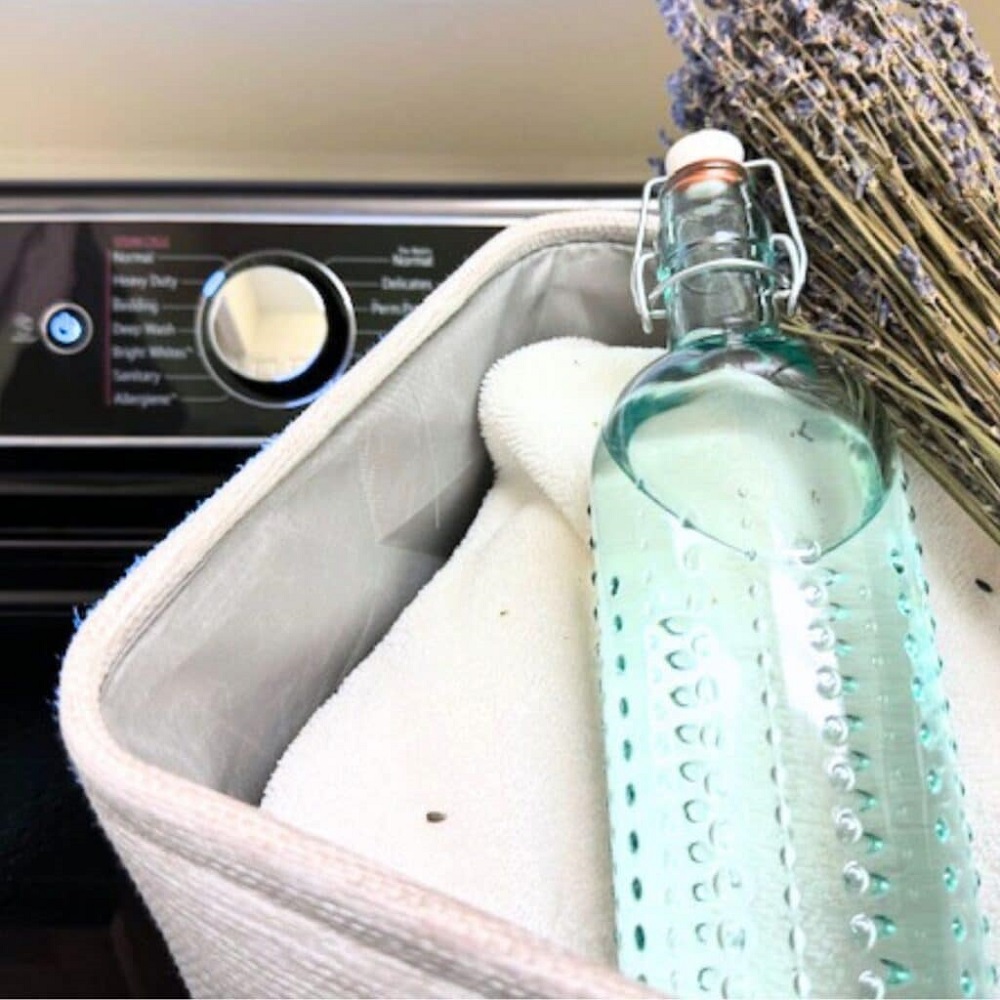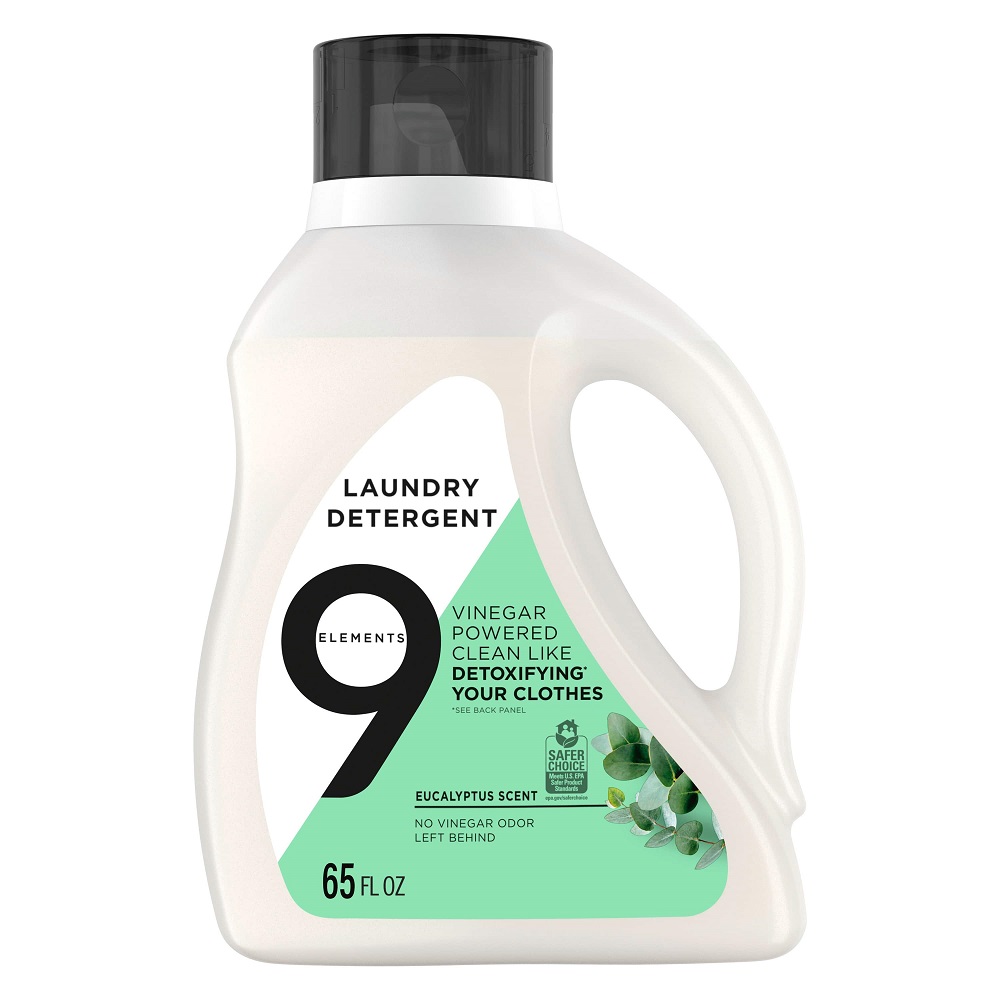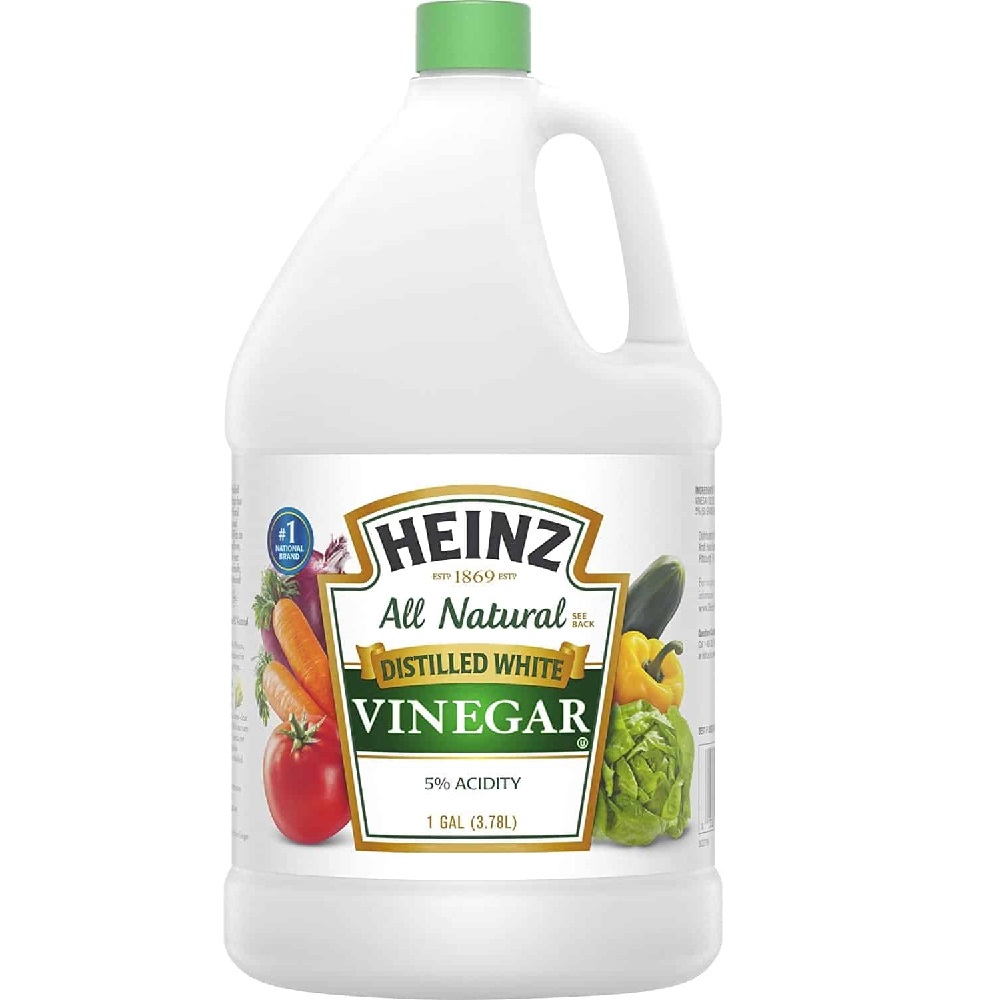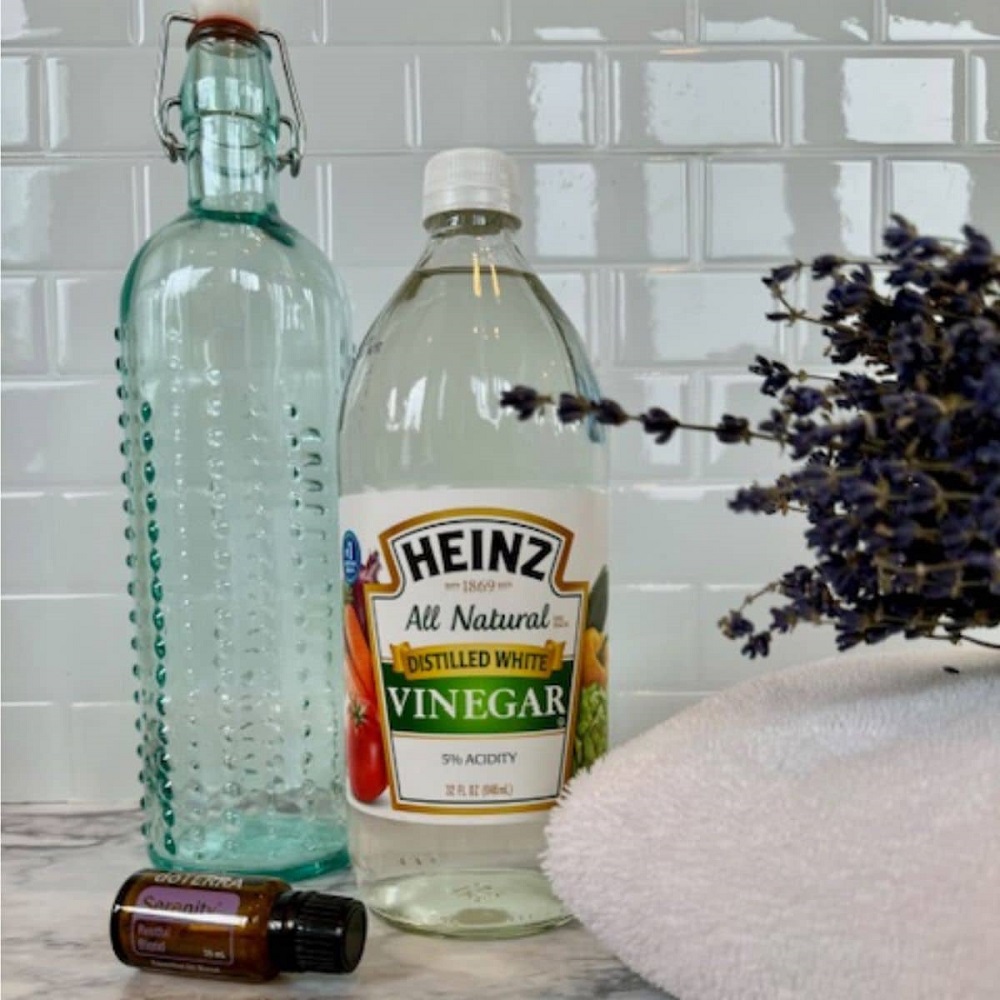When it comes to doing laundry, many people look for natural and effective alternatives to commercial products. Vinegar is one such alternative. It is cheap and natural, and it can help soften your clothes. But how much vinegar should you use? This comprehensive guide will provide you with all the information you need to make your laundry soft and fresh using vinegar.
The Basics of Vinegar in Laundry
What is Vinegar?
Vinegar is a versatile household staple. It is made through the fermentation of ethanol by bacteria. It has been used for centuries for various purposes, including cooking, cleaning, and even medicinal purposes. The most common type of vinegar used in households is white distilled vinegar. This type of vinegar is especially effective for laundry purposes.
Why Use Vinegar in Laundry?
Vinegar is an excellent alternative to commercial fabric softeners for several reasons. For one, it is chemical-free, making it a good option for those with sensitive skin or allergies. Vinegar also helps to remove detergent residues from clothes, which can make them softer. Additionally, vinegar has natural antibacterial properties, which can help to eliminate odors from fabrics.
How Does Vinegar Work as a Fabric Softener?
Vinegar works as a fabric softener by breaking down the residues left behind by detergents and dirt. These residues can make fabrics stiff and uncomfortable. When you add vinegar to your laundry, it helps to dissolve these residues, leaving your clothes feeling soft and fresh. Vinegar also helps to maintain a balanced pH level in fabrics, which can prolong the life of your clothes.
Determining the Right Amount of Vinegar
How Much Vinegar Should You Use?
The amount of vinegar you should use in your laundry depends on several factors, including the size of the load, the type of fabrics, and the level of softness you desire. As a general rule, you can start by adding 1/2 cup to 1 cup of white distilled vinegar to your laundry during the rinse cycle. This quantity is usually sufficient for a standard load of laundry.
Adjusting the Amount Based on Load Size
For smaller loads, you may want to use less vinegar. If you have a small load of laundry, try using 1/4 cup to 1/2 cup of vinegar. On the other hand, if you have a large load or heavily soiled clothes, you may need to use up to 1 1/2 cups of vinegar. It is always a good idea to start with a smaller amount and gradually increase it if needed.
Fabric Types and Vinegar Usage
Different fabrics may require different amounts of vinegar. For delicate fabrics such as silk or wool, it is best to use a smaller amount of vinegar, starting with 1/4 cup. For heavier fabrics like denim or towels, you may need to use more vinegar to achieve optimal softness. Adjust the amount of vinegar based on the specific needs of the fabrics you are washing.
Incorporating Vinegar into Your Laundry Routine
Adding Vinegar to the Rinse Cycle
To use vinegar as a fabric softener, add it to the rinse cycle of your washing machine. If your machine has a fabric softener dispenser, you can pour the vinegar directly into the dispenser. If not, wait until the rinse cycle starts and add the vinegar directly to the water. This ensures that the vinegar is evenly distributed and can effectively soften your clothes.
Enhancing the Softening Effects
For extra softness, you can combine vinegar with baking soda. Add 1/2 cup of baking soda to the laundry along with your detergent during the wash cycle, and then add 1/2 cup to 1 cup of vinegar during the rinse cycle. This combination helps to remove residues and leave your clothes feeling incredibly soft.
Pre-Soaking for Maximum Softness
For particularly stubborn or stiff fabrics, you can pre-soak them in a vinegar solution before washing. Fill a basin with warm water and add 1 cup of vinegar. Soak the clothes for at least 30 minutes, then wash as usual. This method helps to break down residues and soften the fabrics more effectively.
Addressing Concerns and Misconceptions
Will Vinegar Make My Clothes Smell Like Vinegar?
One common concern about using vinegar in laundry is the smell. However, rest assured that your clothes will not smell like vinegar after washing. The smell of vinegar dissipates during the rinse cycle and leaves your clothes odor-free. If you are still worried about the smell, you can add a few drops of your favorite essential oil to the rinse cycle along with the vinegar.
Can Vinegar Damage My Washing Machine?
Another concern is whether vinegar can damage your washing machine. Vinegar is generally safe for use in washing machines, including high-efficiency (HE) machines. However, it is important to use the recommended amounts and not overuse it. Excessive vinegar can potentially harm rubber seals and hoses over time. Using the appropriate amount of vinegar ensures that it effectively softens your clothes without causing damage to your machine.
Is Vinegar Safe for All Fabrics?
Vinegar is safe for most fabrics, but it is always a good idea to do a spot test on a small, inconspicuous area if you are unsure. Some delicate fabrics, such as silk or certain wools, may require special care. In such cases, use a smaller amount of vinegar and avoid prolonged exposure. Always check the care labels on your clothes for any specific washing instructions.
The Environmental Benefits of Using Vinegar
Reducing Chemical Use
One of the significant advantages of using vinegar as a fabric softener is that it reduces the need for chemical-laden commercial softeners. Many commercial fabric softeners contain synthetic chemicals and fragrances that can be harmful to the environment and can cause skin irritation. By using vinegar, you are opting for a natural and eco-friendly alternative.
Biodegradable and Non-Toxic
Vinegar is biodegradable and non-toxic, making it an excellent choice for environmentally-conscious individuals. Unlike commercial fabric softeners, vinegar does not contribute to water pollution. When you use vinegar in your laundry, you can feel good knowing that you are reducing your environmental impact.
Cost-Effective and Sustainable
Using vinegar as a fabric softener is not only good for the environment but also cost-effective. Vinegar is affordable and readily available, making it a budget-friendly option. Additionally, using vinegar can help prolong the life of your clothes, reducing the need for frequent replacements and contributing to sustainable living.
Additional Tips and Tricks
Using Vinegar to Brighten Colors
In addition to its softening properties, vinegar can also help to brighten colors. Add 1/2 cup of vinegar to the rinse cycle to help maintain the vibrancy of your colored clothes. This method helps to remove detergent residues that can dull colors over time.
Removing Stubborn Odors
Vinegar is highly effective at removing stubborn odors from clothes. Whether it’s sweat, smoke, or mildew, vinegar can help to neutralize unpleasant smells. Add 1 cup of vinegar to the rinse cycle to eliminate odors and leave your clothes smelling fresh.
Preventing Static Cling
Vinegar can also help to reduce static cling in clothes. During the rinse cycle, add 1/2 cup of vinegar to the laundry. This method helps to prevent static electricity from building up in your clothes, making them more comfortable to wear.
Vinegar for Washing Machine Maintenance
Using vinegar in your laundry not only benefits your clothes but also your washing machine. Vinegar helps to clean and deodorize your washing machine, preventing the buildup of mold and mildew. Run an empty cycle with 2 cups of vinegar once a month to keep your machine clean and fresh.
Conclusion
In conclusion, vinegar is a versatile, eco-friendly, and cost-effective alternative to commercial fabric softeners. By using vinegar in your laundry, you can achieve soft, fresh, and vibrant clothes without the use of harsh chemicals. The recommended amount of vinegar varies based on the size of the load, fabric type, and desired softness. Generally, adding 1/2 cup to 1 cup of white distilled vinegar to the rinse cycle is sufficient for most loads. Remember to adjust the amount based on specific needs and fabric requirements.
Not only does vinegar effectively soften your clothes, but it also offers additional benefits such as brightening colors, removing odors, preventing static cling, and maintaining your washing machine. Vinegar is biodegradable, non-toxic, and reduces the use of synthetic chemicals, making it an environmentally-friendly option for laundry care.
By incorporating vinegar into your laundry routine, you can enjoy the benefits of naturally soft and fresh clothes while also contributing to sustainable living. Whether you are looking to reduce your environmental impact, save money, or avoid chemical-laden products, vinegar is an excellent choice for fabric softening.
Incorporate the tips and guidelines provided in this comprehensive guide to determine the right amount of vinegar for your laundry needs. Experiment with different amounts and techniques to achieve optimal results. Embrace vinegar as a natural fabric softener and enjoy the satisfaction of knowing that you are making a positive impact on both your clothes and the environment.



